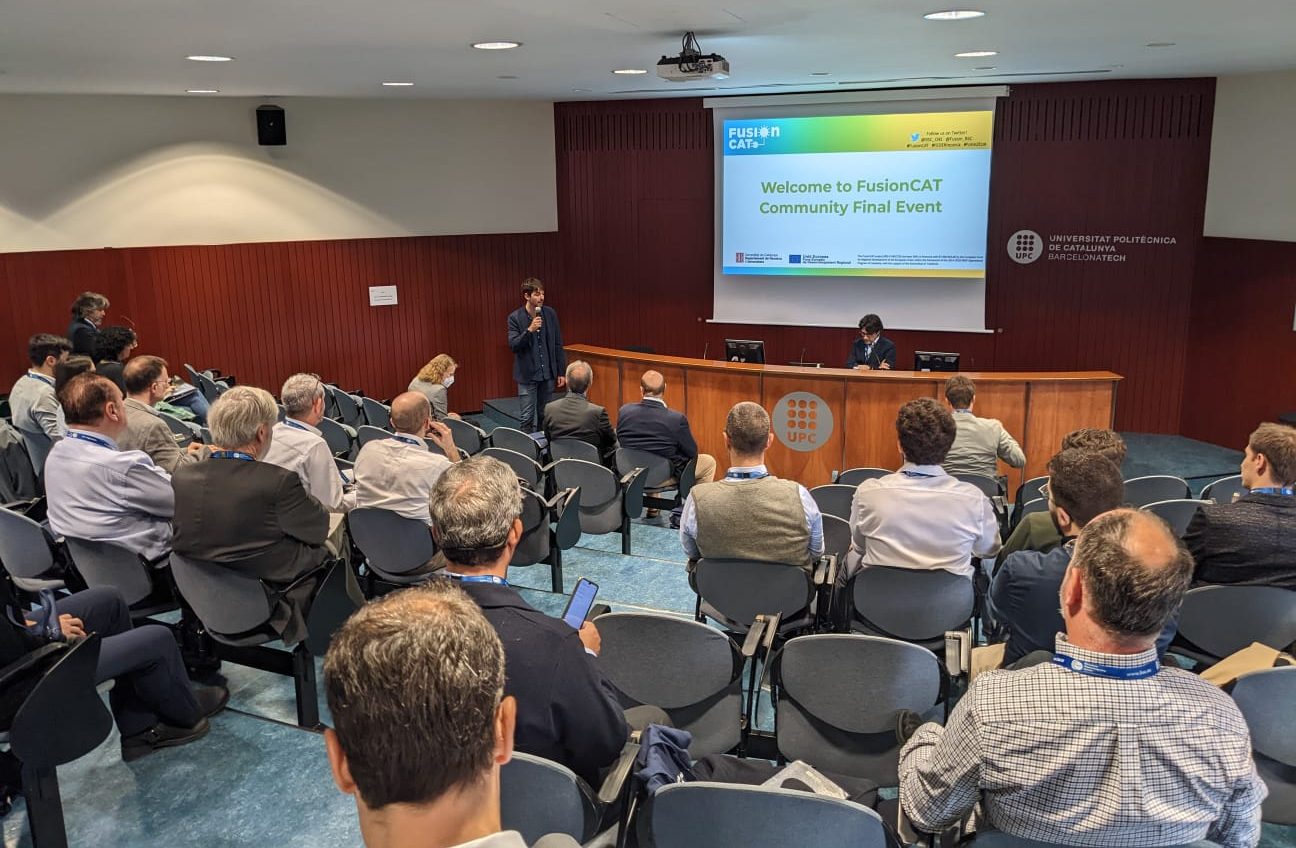
With a two-day event, the closure of the FusionCAT project has taken place. FusionCAT involved seven regional institutions from Catalonia devoted to developing industrial skills and achieving fusion energy and has been co-financed by the European Union Regional Development Fund within the framework of the ERDF Operational Program 2014-2020, with the support of Generalitat de Catalunya.
The partners, representing Universitat Politècnica de Catalunya (UPC), Institut Químic de Sarrià (IQS), Institut de Ciència dels Materials de Barcelona (ICMAB), Institut de Recerca en Energia de Catalunya (IREC), EURECAT and the Business and Technology Education Council (BTEC) were received by the Barcelona Supercomputing Center (BSC), the coordinator of the project.
The main advisers of the project, Alfredo Portone (F4E) and David Campbell (ex-ITER) were also present at the event. Both of them contributed from their experience, important advice and constructive criticism, especially with a view to its continuity.
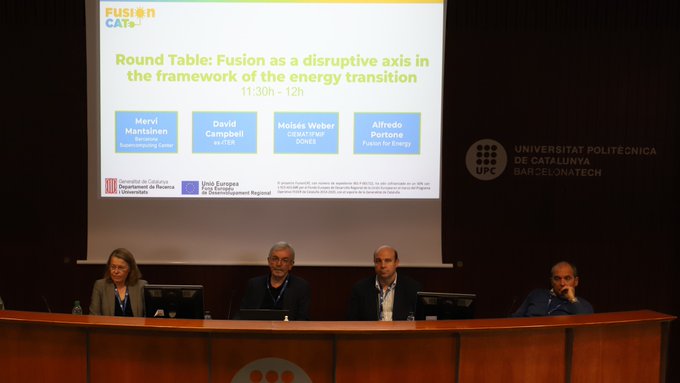
On the first day of the meeting, each involved institution showed the main achievements reached during the three years of the project and, more importantly, the following steps to guarantee its continuity. It is difficult to summarize the multiple works made during this project in a few lines, since they range from the consolidation of numerical models of different aspects of the fusion reactor and other related devices to the development of tritium and lithium sensors, the construction of high-performance catalytic membranes, as well as the study of superconducting materials to be components of magnets. But maybe the most relevant aspect of the entire project was the consolidation of a collaborative network between partners and towards the fusion community in Catalonia and beyond.
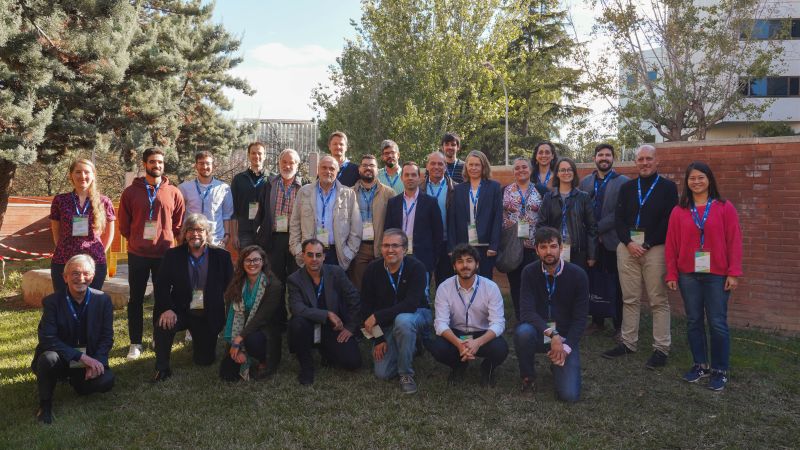
The second-day meeting was open to the fusion community, attending representatives of prominent companies dedicated to providing goods and services to the sector. Representatives from APPLUS, IDOM, AVS, SUPRASYS, CT engineering, KIM, PROCON and FUS_ALIANZ were present, showing the impressive variety of topics in which they are involved, among which those related to the nuclear fusion industry stood out.
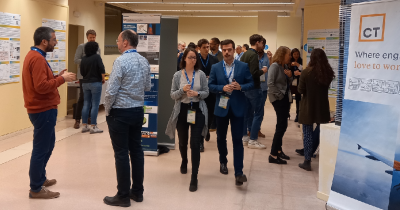
The event also was attended by Manuel Moreno (CDTI), Leonardo Biagioni (F4E), Lluís Maria Tortras (ACCIÓ), Volker Naulin (EUROfusion) and Moisés Weber (CIEMAT/IFMIF-DONES) who highlighted different forms of collaboration and financing of projects for nuclear fusion that each of the entities they represent make available to the community.
Certainly, nuclear fusion energy, in addition to being a topic of great scientific and technological interest, is a solution to the planet’s current energy problems. And it is also true that it is a future solution, which does not have a certain start date. But one thing is certain, in that “final” event of FusionCAT, in a room gathering so many outstanding scientists and technologists with a strong desire to strengthen collaborative ties, it was felt that this future, which we all want to help build, is a little closer.
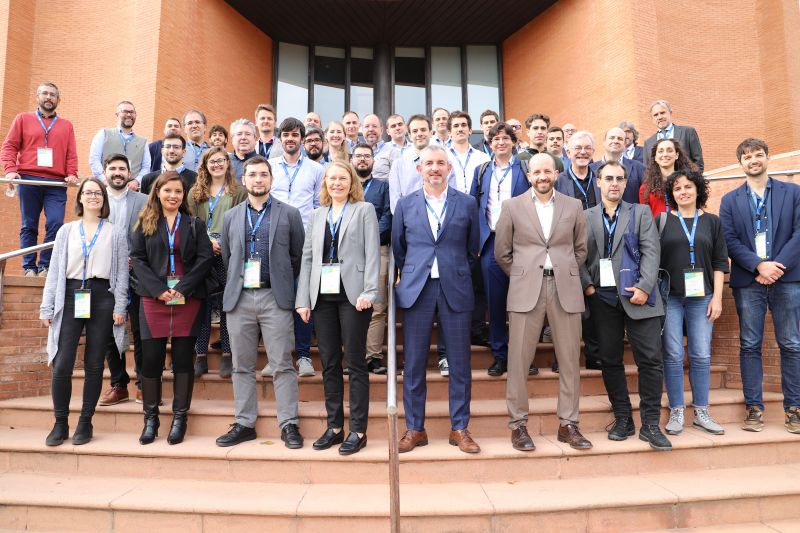
The research carried out by the BSC Fusion group was partly funded by the FusionCAT project (001-P-001722) which has been 50% co-financed with € 1.960.963,66 by the European Fund for Regional Development of the European Union within the framework of the 2014-2020 ERDF Operational Program of Catalonia, with the support of the Generalitat of Catalonia.

